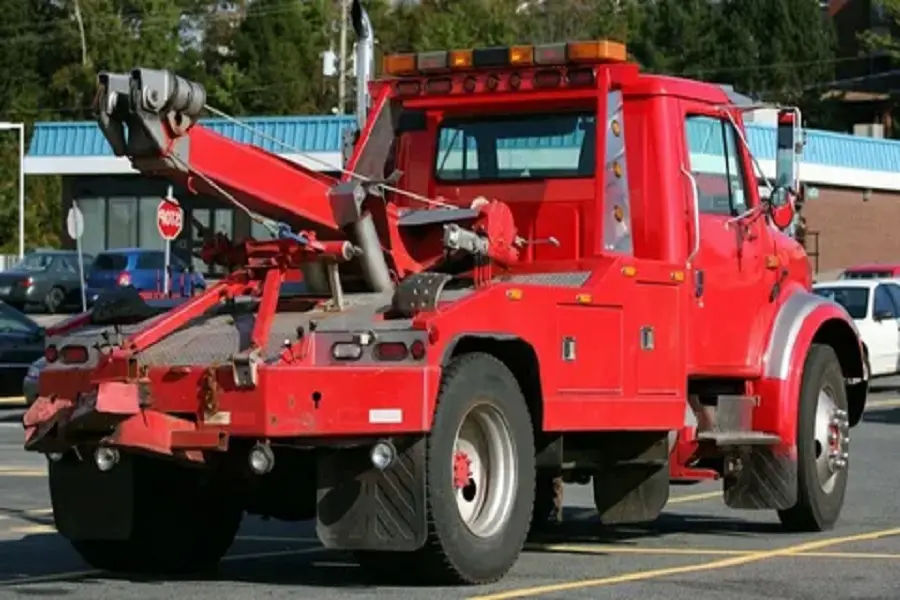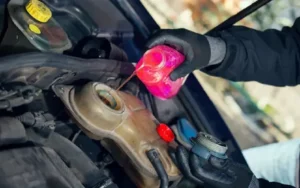Finding the Right Tow Truck: A Comprehensive Guide to Getting Back on the Road
Introduction
Imagining the scenario, you’re cruising down the highway when suddenly, a loud pop echoes from your vehicle. Your heart sinks as you realize you have a flat tire.
Pulling over to the side of the road, you know you need to find a reliable tow truck service to get you back on your way. This is a situation no driver wants to find themselves in, but it’s an all-too-common occurrence.
Fortunately, with the right knowledge and resources, locating a trustworthy “tow truck near me” doesn’t have to be a stressful ordeal.
In this comprehensive guide, we’ll explore the key factors to consider when searching for a tow truck, the different types of services available, the process of obtaining assistance, and valuable tips to ensure a smooth towing experience.
By the end, you’ll be equipped with the information needed to quickly and confidently get the help you need, no matter where the road takes you.
When Roadside Trouble Strikes: Understanding Towing Emergencies
Road emergencies can turn a routine drive into a stressful nightmare. Imagine you’re driving down a lonely highway, and suddenly your car sputters, steam billows from the hood, or a tire goes flat. This is where knowing how to find a reliable tow truck near me becomes your lifeline.
Common Roadside Scenarios Demanding a Tow
Drivers face numerous situations that require professional towing:
- Complete engine failure
- Severe tire damage
- Accidents rendering the vehicle undrivable
- Overheating problems
- Electrical system breakdowns
Pro Tip: Not every breakdown requires a tow. Sometimes, a quick roadside repair can get you back on the road.
Locating a Tow Truck Near Me: Strategies That Work
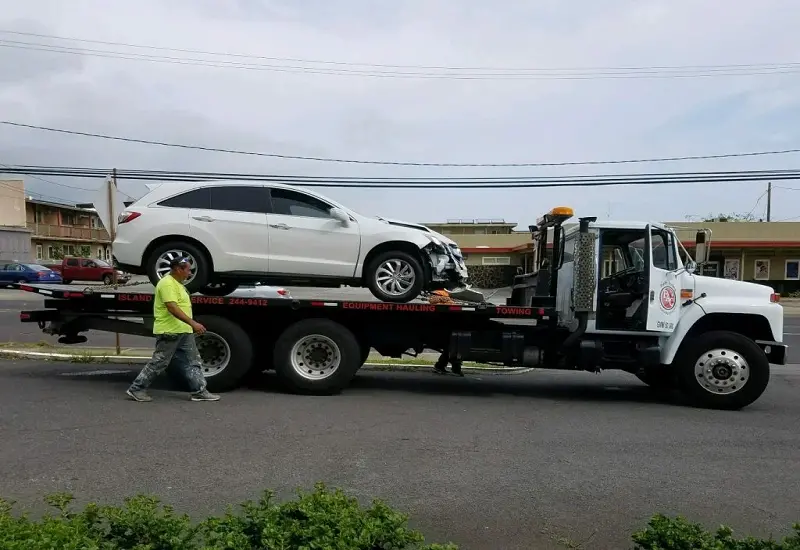
Finding a trustworthy tow service doesn’t have to be complicated. Modern technology has made locating help easier than ever.
Tech-Powered Towing Solutions
| Tool | Effectiveness | Average Response Time |
| Roadside Assistance Apps | High | 15-30 minutes |
| Insurance Provider Apps | Medium | 30-45 minutes |
| Local Towing Directories | Variable | 45-60 minutes |
Top Mobile Apps for Instant Towing Help
- AAA Mobile
- Urgently
- Honk
- Roadside Master
GPS and Location Services: Your Digital Tow Truck Finder
Smartphone GPS can be a game-changer when you need a tow truck near me. Most modern mapping applications now integrate with local towing services, providing:
- Exact location sharing
- Estimated arrival times
- Service provider ratings
- Immediate contact options
Factors to Consider When Searching for a Tow Truck
When faced with a roadside emergency, the first and most pressing concern is finding a tow truck service that can reach you quickly. However, speed is just one piece of the puzzle. To ensure you receive the best possible support, there are several vital factors to take into account.
Proximity and Response Time
The proximity of the tow truck to your location is arguably the most critical factor. After all, the closer the service, the faster they can arrive and get you back on the road. Leveraging GPS-enabled mapping apps or searching for “tow truck near me” on search engines can help you quickly identify the closest options.
But speed of response is just as important as physical proximity. The best tow truck companies prioritize rapid dispatch, with trained drivers ready to head out at a moment’s notice. Look for reviews that highlight fast response times, and don’t hesitate to ask potential providers about their average arrival window.
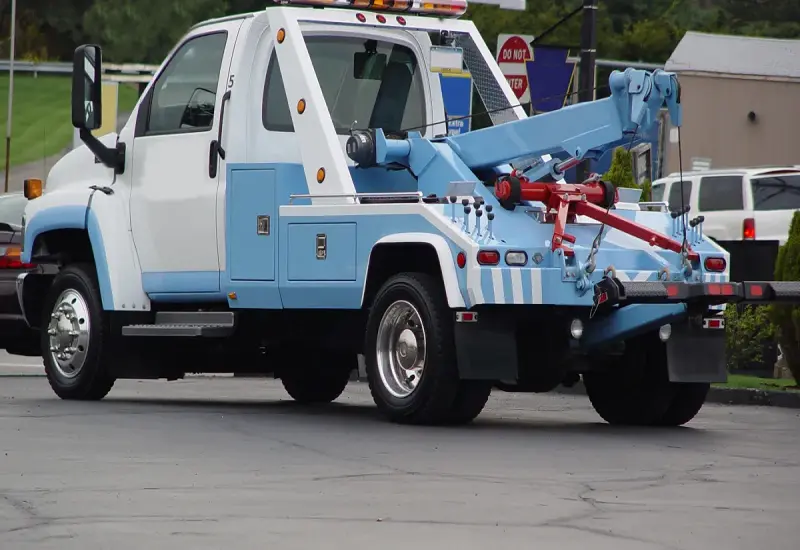
Reputation and Reviews
Once you’ve identified a few nearby tow truck services, it’s time to dig deeper and assess their reputation. Scouring online reviews can provide invaluable insights into the quality of their work, customer service, and overall reliability. Pay close attention to recurring positive or negative themes, and don’t be afraid to reach out to friends, family, or local automotive experts for personal recommendations.
Reputable tow truck companies will also typically be affiliated with industry associations, carry the proper licensing and insurance, and demonstrate a commitment to safety and professionalism. These are all important signs that you’re dealing with a trustworthy provider.
Pricing and Service Options
Of course, the cost of the tow is another crucial consideration. Rates can vary significantly between providers, so be sure to compare pricing upfront.
Keep in mind that the total cost may depend on factors like the distance traveled, the size and weight of your vehicle, and any additional services required (e.g., jump-starts, flat tire changes).
Some tow truck companies also offer specialized services, such as heavy-duty hauling for larger vehicles or flatbed transport for delicate cars. Identify your specific needs and look for a provider that can accommodate them.
By carefully weighing these key factors, you’ll be well on your way to finding the right tow truck service to get you back on the road quickly and seamlessly.
Types of Tow Truck Services
When it comes to tow truck services, there’s no one-size-fits-all solution. Depending on the size and condition of your vehicle, as well as the nature of the breakdown, you may require a specific type of tow truck. Understanding the different options available will help you make an informed decision.
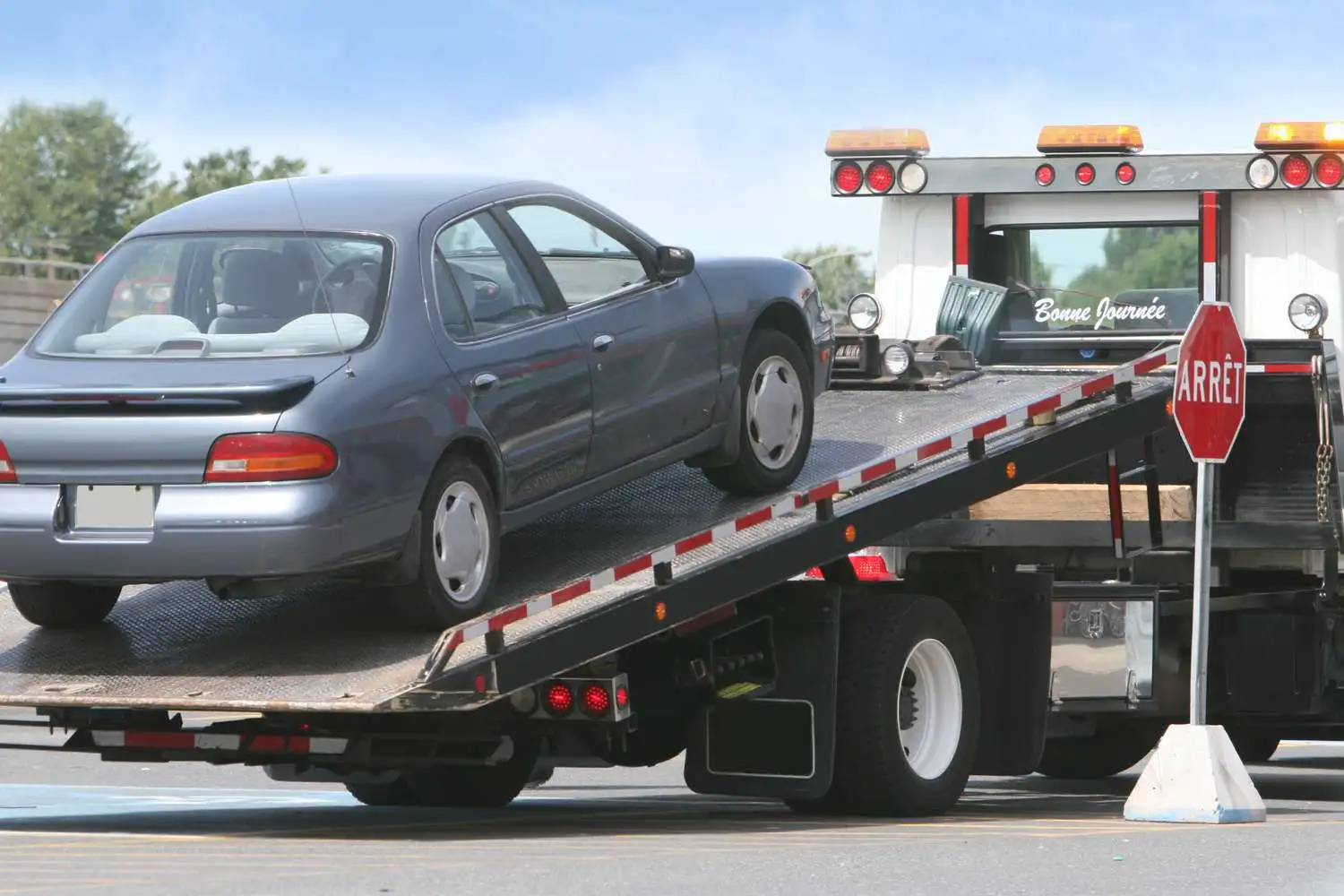
Standard Tow Trucks
The most common type of tow truck is the standard model, designed to transport a wide range of vehicles safely and efficiently. These trucks typically feature a hydraulic boom or “hook and chain” system that securely lifts and tows the car or truck. Standard tow trucks are well-equipped to handle everything from sedans and SUVs to small vans and pickup trucks.
In addition to the towing service, many standard tow truck providers also offer supplementary roadside assistance, such as jump-starts, flat tire changes, and fuel delivery. This one-stop-shop approach can be particularly valuable in emergency situations.
Heavy-Duty Tow Trucks
For larger vehicles, such as commercial trucks, RVs, or heavy equipment, a standard tow truck may not be sufficient. That’s where heavy-duty tow trucks come into play. These powerful, specialized vehicles are engineered to safely lift and transport even the largest and most cumbersome of loads.
Heavy-duty tow trucks often feature advanced features like air brakes, hydraulic lifts, and reinforced chassis to ensure a smooth and secure towing experience. They may also be equipped with additional tools and equipment to handle more complex recovery operations, such as winching or stabilizing the vehicle.
Flatbed Tow Trucks
Some vehicles, particularly those with all-wheel-drive or delicate components, require a more delicate approach to transportation. Flatbed tow trucks are designed for this purpose, gently lifting the entire vehicle onto a flat, enclosed platform for transport.
This method of towing is especially beneficial for high-end, luxury, or specialty vehicles, as it minimizes the risk of damage or further complications. Flatbed tow trucks are also a popular choice for transporting motorcycles, as they provide a safe and secure way to keep the bike upright during the journey.
Regardless of the type of tow truck you require, it’s essential to research your options and choose a provider that can accommodate your specific needs.
By understanding the different service offerings, you’ll be better equipped to make an informed decision and get your vehicle back on the road as quickly and safely as possible.
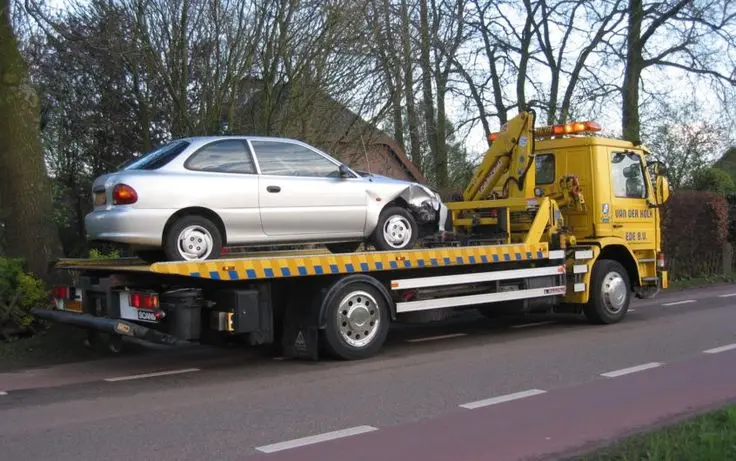
Obtaining Tow Truck Assistance
When faced with a roadside emergency, there are a few different avenues you can pursue to obtain the necessary tow truck assistance. The approach you choose will depend on your personal preferences, as well as the resources and coverage available to you.
Contacting Tow Truck Companies Directly
The most straightforward option is to contact tow truck companies directly. This allows you to compare pricing, availability, and service offerings across multiple providers, giving you the flexibility to select the one that best fits your needs.
When calling a tow truck company, be prepared to provide the following information:
- Your exact location (using GPS coordinates or landmarks)
- The make, model, and condition of your vehicle
- The nature of the breakdown or emergency
- Any special requirements (e.g., heavy-duty towing, flatbed transport)
With this information, the tow truck operator can accurately assess the situation and dispatch the appropriate resources. Don’t be afraid to negotiate the rates or request discounts, as many companies are willing to work with you to secure a fair price.
Utilizing Roadside Assistance Programs
Another option to consider is leveraging a roadside assistance program, either through your car insurance provider or a standalone membership-based service. These programs often have pre-negotiated rates with a network of trusted tow truck companies, ensuring you receive reliable service at competitive prices.
The key benefits of using a roadside assistance program include:
- Priority dispatch and expedited response times
- Prearranged, transparent pricing structures
- Streamlined claims and reimbursement processes
- Comprehensive coverage, including additional services like lockout assistance or fuel delivery
Before relying on a roadside assistance program, be sure to review the terms and conditions carefully to understand the full scope of coverage and any limitations or exclusions that may apply.
Ultimately, whether you choose to contact tow truck companies directly or utilize a roadside assistance program, the goal is to secure prompt, reliable, and cost-effective support to get you back on the road as quickly as possible.
Tips for a Smooth Towing Experience
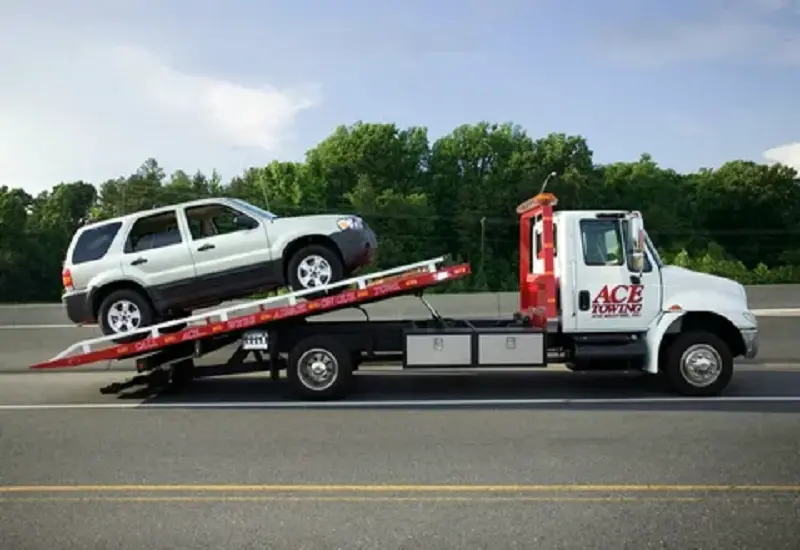
Once you’ve identified and contacted the appropriate tow truck service, there are a few additional steps you can take to ensure a seamless and stress-free towing experience.
Preparing Your Vehicle for Transport
Before the tow truck arrives, take a few moments to prepare your vehicle for transport. This may include:
- Securing any loose items or belongings inside the car
- Disconnecting the battery to prevent any electrical issues
- Providing clear instructions or special considerations to the tow truck driver (e.g., all-wheel-drive, low clearance)
Taking these simple precautions can help prevent damage to your vehicle and facilitate a smooth towing process.
Understanding Your Rights and Responsibilities
When dealing with a tow truck service, it’s important to understand your rights and responsibilities as the vehicle owner. This includes:
- Knowing what to expect in terms of the towing process, estimated costs, and any potential storage or impound fees
- Reviewing the tow truck operator’s credentials and ensuring they are properly licensed and insured
- Handling the payment and any necessary insurance claims in a timely and organized manner
Familiarizing yourself with these guidelines will help you navigate the towing experience with confidence and avoid any unpleasant surprises.
Providing Feedback and Building Relationships
Finally, don’t forget to provide feedback to the tow truck company, whether it’s a positive review or constructive criticism. This information can help them improve their services and build stronger relationships with their customers.
Additionally, consider establishing a rapport with a reliable tow truck provider in your local area. Having a trusted go-to service can be invaluable, as they’ll be familiar with your vehicle and preferences, making the process even smoother the next time you need assistance.
By following these tips, you’ll be well on your way to a hassle-free towing experience, allowing you to get back on the road and continue your journey with peace of mind.
Decoding Tow Truck Types: Which One Do You Need?
Specialized Towing Vehicles
- Flatbed Tow Trucks
- Best for luxury and all-wheel-drive vehicles
- Provides maximum vehicle protection
- Ideal for long-distance transportation
- Hook and Chain Trucks
- Older method, less recommended
- Potential vehicle damage
- Suitable for junk or salvage vehicles
- Wheel-Lift Tow Trucks
- Modern, efficient design
- Minimal vehicle contact
- Quick deployment
- Suitable for most standard vehicles
Understanding Towing Costs and Insurance
Average Towing Rates Breakdown
- Local Tow (5-10 miles): $75 – $125
- Long-Distance Tow (50+ miles): $200 – $500
- After-Hours Emergency Tow: Additional 20-30% charge
- Specialty Vehicle Towing: $150 – $300 extra
Insurance Coverage Tips
- Check your auto insurance policy
- Verify roadside assistance benefits
- Understand mileage limitations
- Know your out-of-pocket expenses
Avoiding Towing Scams: Red Flags to Watch
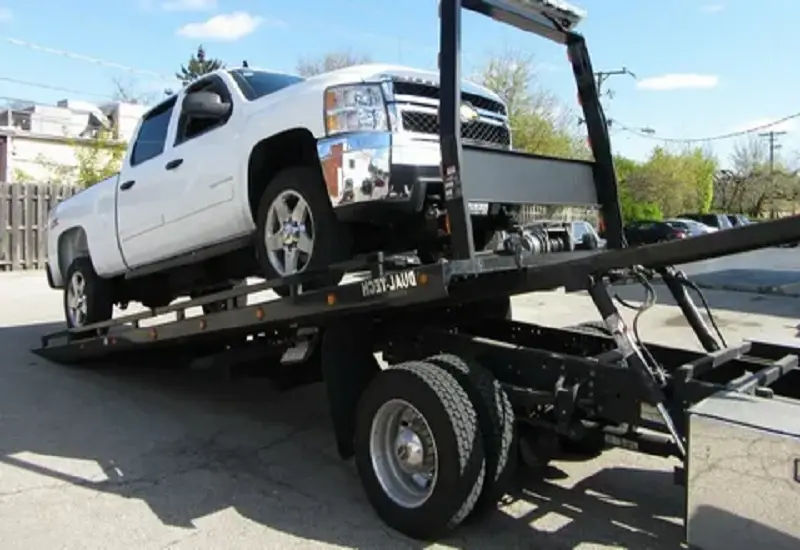
Warning Signs of Unreliable Tow Services
- No clear pricing information
- Unmarked vehicles
- Aggressive solicitation
- Lack of proper licensing
- Demanding cash-only payments
Quick Verification Steps:
- Request company credentials
- Check online reviews
- Verify business registration
- Ask for upfront pricing
Technology Transforming Towing
Modern Dispatch Innovations
- Real-time GPS tracking
- Automated service matching
- Instant communication platforms
- Predictive maintenance alerts
Preventative Maintenance: Your Best Towing Defense
Vehicle Health Checklist
- Regular oil changes
- Tire pressure monitoring
- Battery health checks
- Fluid level inspections
- Annual comprehensive vehicle assessment

FAQs About Finding a Tow Truck Near Me
As an advanced AI assistant, I understand that navigating the process of locating and securing a reliable tow truck service can raise several questions. Here are five of the most frequently asked inquiries, along with concise and informative responses:
- How do I find the closest tow truck service to my location?
- Utilize GPS-enabled mapping apps or search for “tow truck near me” on search engines to quickly identify the tow truck providers closest to your current location.
- Consider your specific needs, such as proximity, response time, and specialized services, to narrow down the options.
- What should I look for in terms of a tow truck company’s reputation?
- Thoroughly review online customer reviews to gauge the quality of service, professionalism, and reliability of potential tow truck providers.
- Seek recommendations from trusted sources, such as your auto insurance provider, local automotive experts, or even friends and family members.
- How much can I expect to pay for a tow truck service?
- Towing rates can vary widely depending on factors like the distance traveled, the size and weight of your vehicle, and any additional services required.
- To get an accurate estimate, contact multiple tow truck companies and compare their pricing structures.
- Do I need to have a roadside assistance program to use a tow truck service?
- No, you don’t necessarily need a roadside assistance program to utilize a tow truck service. You can contact tow truck companies directly and negotiate the rates.
- However, having a roadside assistance membership can provide benefits like priority dispatch, pre-negotiated rates, and streamlined claims processing.
- What should I do to prepare my vehicle for the tow truck?
- Secure any loose items or belongings inside your vehicle to prevent damage during transport.
- Disconnect the battery to avoid potential electrical issues.
- Provide the tow truck driver with any special instructions or considerations, such as the vehicle’s all-wheel-drive or low clearance.
By addressing these common questions, I hope to provide you with the information needed to confidently navigate the process of finding and utilizing a reliable “tow truck near me” service. Remember, thorough research and preparation are key to ensuring a smooth and stress-free towing experience.
Conclusion
When faced with a roadside emergency, the prospect of finding a dependable “tow truck near me” can seem daunting. However, by understanding the key factors to consider, the different types of tow truck services available, and the process of obtaining assistance, you can take control of the situation and get the help you need quickly and efficiently.
Remember to prioritize proximity and response time, research the reputation and reviews of potential providers, and compare pricing and service options to find the best fit for your needs. Utilize roadside assistance programs when available, and be sure to prepare your vehicle and understand your rights and responsibilities before the tow truck arrives.
With the right knowledge and preparation, you can turn a stressful situation into a smooth and seamless experience, getting you back on the road and back to your destination without delay. So the next time you find yourself in need of a tow, remember this comprehensive guide and put it to work for you.
Key Takeaways:
- Stay calm
- Prioritize safety
- Leverage technology
- Know your insurance coverage
- Maintain your vehicle

With over 5 years of dedicated experience in the automotive industry, I am passionate about all things automotive. My journey began with a deep curiosity for automobiles, which led me to delve deeper into their mechanics, technology and trends. My expertise spans various aspects of the automotive world, from the latest electric vehicles to classic car restoration techniques. Through my articles, I aim to share my knowledge and insights, helping readers stay informed and inspired in the fast-paced world of the automobile.
